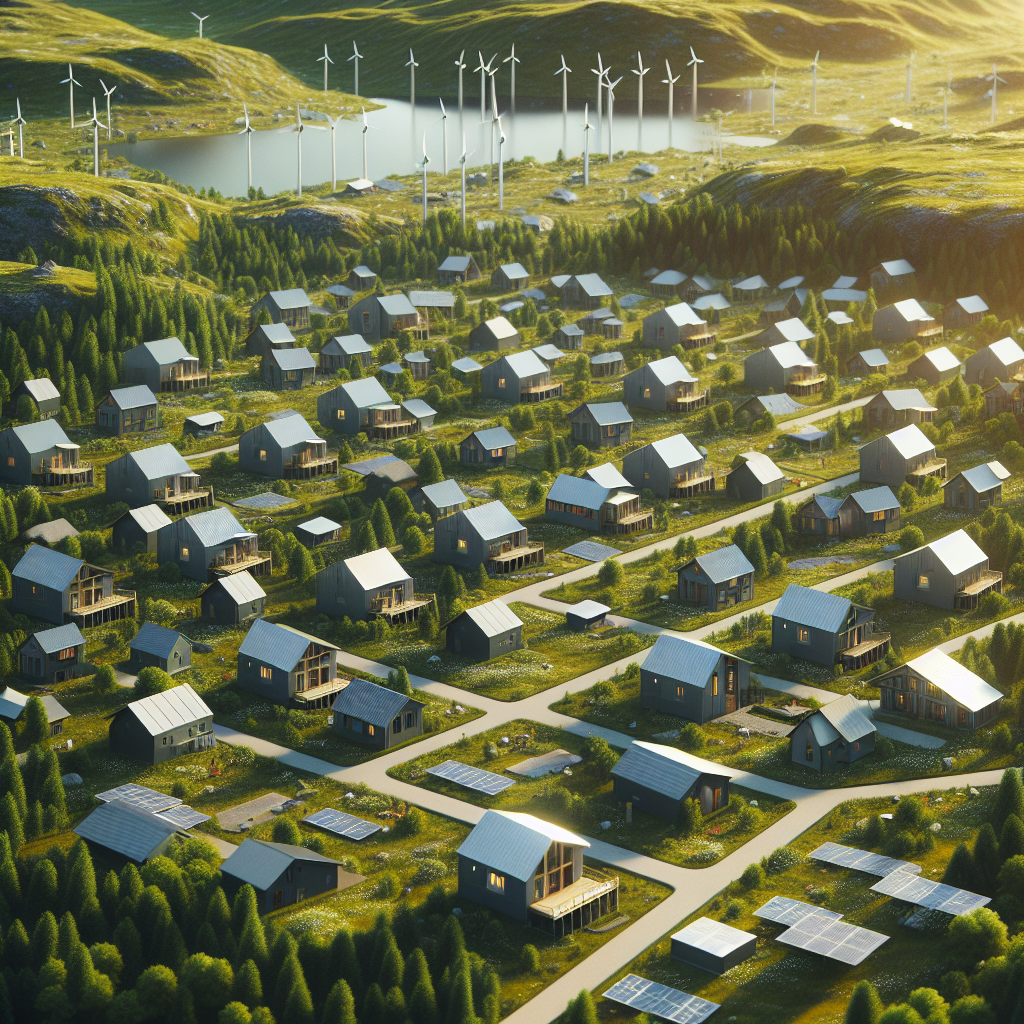Decentralized Energy Systems: Empowering Communities through Microgrids
In an era where the demand for energy is continuously increasing, and the environmental consequences of conventional energy generation are becoming more apparent, the transition toward more sustainable and resilient energy solutions has become imperative. Among these solutions, decentralized energy systems, particularly through the implementation of microgrids, are gaining traction. These innovative systems are not only empowering communities by providing reliable, sustainable, and locally-controlled energy sources but are also playing a crucial role in the global fight against climate change.
Introduction to Decentralized Energy Systems
Decentralized energy systems refer to energy generation and distribution systems that are located close to the point of use, unlike centralized systems where energy is produced in large plants and transmitted over long distances to consumers. These systems often utilize renewable energy sources such as solar, wind, and hydroelectric power, significantly reducing the dependency on fossil fuels and minimizing environmental impact.
The Role of Microgrids
At the heart of decentralized energy systems lies the concept of microgrids. A microgrid is a localized group of electricity sources and loads that normally operates connected to and synchronous with the traditional centralized grid (macrogrid) but can disconnect and function autonomously as physical and/or economic conditions dictate. This capability provides a significant advantage in terms of energy resilience and reliability.
Microgrids can be powered by distributed generators, batteries, and renewable resources like solar panels. By managing these resources efficiently, microgrids can provide energy security for local communities, especially during power outages or in situations where the main grid is unreliable.
Empowering Communities
One of the most significant advantages of decentralized energy systems and microgrids is their ability to empower communities. By localizing energy production, communities gain control over their energy sources, reduce energy costs, and decrease their environmental impact. This is particularly beneficial for remote or underserved communities that have limited access to the central grid. Microgrids can provide these communities with a reliable energy supply, promoting social and economic development.
Moreover, decentralized energy systems encourage community participation and awareness about energy consumption and sustainability. They can lead to the creation of local jobs in the installation, operation, and maintenance of renewable energy systems, further benefiting the local economy.
Environmental Impact
Decentralized energy systems, through the use of microgrids and renewable resources, have a significantly lower environmental impact than traditional energy systems. By reducing the dependency on fossil fuels, these systems decrease greenhouse gas emissions, contributing to the fight against climate change. Additionally, the localized nature of these systems minimizes energy lost in transmission and distribution, further increasing their efficiency and reducing their carbon footprint.
Challenges and Future Prospects
Despite the vast potential of decentralized energy systems, several challenges exist. The initial cost of setting up microgrids, especially those that rely on renewable energy sources, can be high. However, the decreasing cost of renewable energy technologies and the potential for government incentives can mitigate these costs.
Regulatory and policy barriers also pose a challenge, as the current energy infrastructure and regulations are designed for centralized systems. However, with increasing awareness and the undeniable benefits of decentralized energy systems, more favorable policies and regulatory frameworks are being developed.
The future of energy looks promising with decentralized systems. Advances in technology, such as improvements in battery storage, smart grid technology, and blockchain for energy transactions, are making microgrids more efficient, reliable, and easier to manage. As these technologies continue to evolve, decentralized energy systems are set to play a pivotal role in achieving a sustainable and resilient energy future.
FAQs
Q: Can microgrids operate entirely off renewable energy sources?
A: Yes, microgrids can operate entirely on renewable energy sources, such as solar and wind, especially when paired with energy storage systems to ensure reliability.
Q: How do microgrids contribute to energy resilience?
A: Microgrids can operate independently from the central grid, providing a continuous energy supply even during outages or disasters, thus enhancing energy resilience.
Q: Are decentralized energy systems more expensive than traditional energy systems?
A: The initial setup costs for decentralized systems, particularly those based on renewables, can be higher. However, the reduction in energy costs over time and potential government incentives can make them cost-competitive.
Q: Can an existing community transition to a microgrid system?
A: Yes, existing communities can transition to microgrid systems. This process involves integrating renewable energy sources, setting up energy storage, and implementing smart grid technology for efficient energy management.
Q: What role do consumers play in decentralized energy systems?
A: Consumers play a crucial role as both energy users and producers (prosumers). They can contribute to the energy system by generating renewable energy, participating in demand response programs, and promoting sustainable energy practices within their communities.
In conclusion, decentralized energy systems and microgrids represent a transformative approach to energy production and consumption. By empowering communities, reducing environmental impact, and enhancing energy resilience, these systems are paving the way toward a sustainable energy future. Despite the challenges, the potential benefits and the advancing technology make decentralized energy systems a promising solution for global energy needs.

